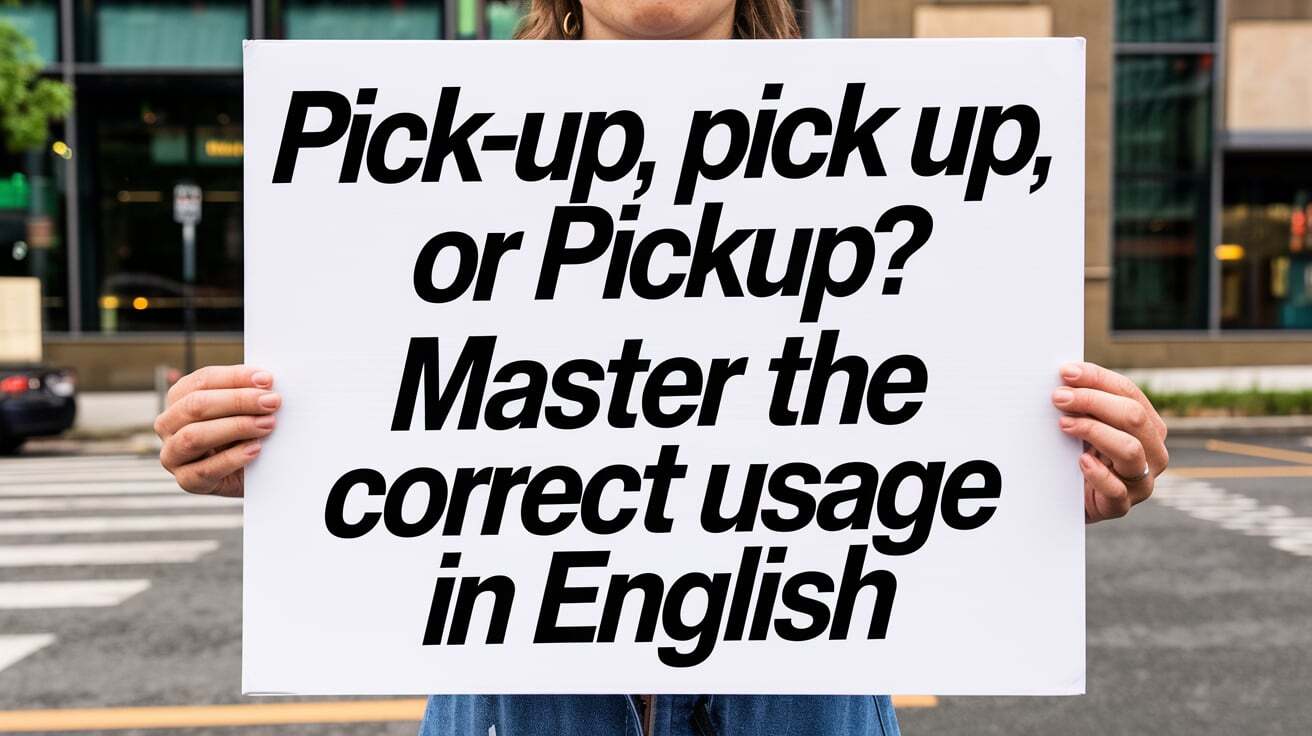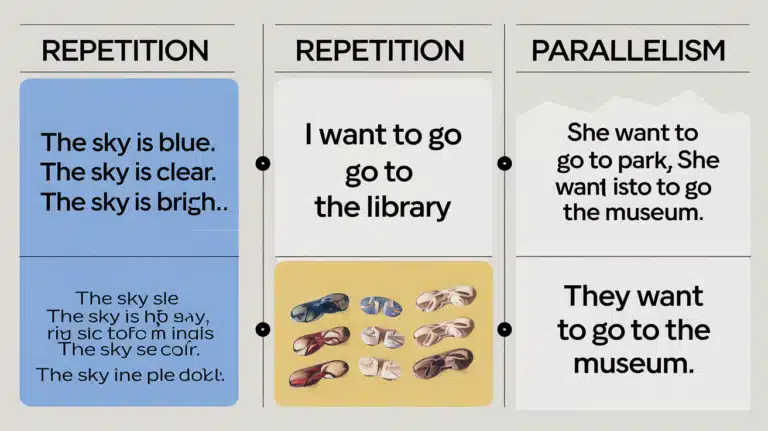Pick-Up, Pick Up, or Pickup: Mastering Usage in the English Language
Ever found yourself second-guessing whether to write “pick-up,” “pick up,” or “pickup”? You’re not alone! This trio of terms has puzzled writers, editors, and language enthusiasts alike. If you’ve ever wondered how to nail their usage, you’re in the right place. Let’s break down this tricky linguistic puzzle and clear up the confusion once and for all.
The Great Hyphen Debate: Unraveling the Pick-Up Puzzle
Imagine you’re drafting an important email about a scheduled collection of goods. You pause, fingers hovering over the keyboard. Should you write “pick-up time,” “pick up time,” or “pickup time”? This common conundrum plagues many English speakers, from novices to seasoned writers.
The confusion stems from the fact that all three forms exist in the English language, each with its own specific use cases. Let’s break it down and explore when to use each variation.
The Root of the Confusion
Language is a living entity, constantly evolving. The pick-up conundrum is a perfect example of this evolution in action. Over time, different style guides and regional preferences have emerged, adding to the complexity.
- American English tends to favor closed compounds (pickup)
- British English often leans towards hyphenated forms (pick-up)
- Some style guides recommend the two-word form (pick up) for verb phrases
This variety of accepted forms contributes to the widespread confusion among writers and editors alike.
Breaking It Down: Definitions and Usage
To master the use of these terms, let’s examine each form in detail:
Pick-Up (noun/adjective)
The hyphenated form “pick-up” functions as both a noun and an adjective. It’s commonly used in the following contexts:
- As a noun: “The pick-up of the parcel is scheduled for tomorrow.”
- As an adjective: “We offer a convenient pick-up service.”
Industries where “pick-up” is prevalent:
- Logistics and shipping
- Food delivery services
- Waste management
Pick Up (verb)
“Pick up” as a two-word phrase is a verb or verb phrase. It has various meanings depending on the context:
- To lift or gather: “Please pick up your toys before dinner.”
- To collect someone: “I’ll pick up the kids from school today.”
- To acquire or learn: “She picked up French quickly during her stay in Paris.”
Phrasal verb nuances:
- Pick up speed: To accelerate
- Pick up the tab: To pay for something
- Pick up where one left off: To resume an activity
Pickup (noun)
The closed compound “pickup” is widely accepted as a noun in modern usage. It refers to:
- A vehicle: “He drives a sturdy pickup truck for work.”
- The act of collecting: “Garbage pickup is on Tuesdays.”
Differences from “pick-up”:
While both forms can be used as nouns, “pickup” is more common in American English and in reference to vehicles.
Read More About : How to Spell “Different” Correctly: A Guide for Learners and Native Speakers
The Grammar Showdown: Which One Wins?
When it comes to choosing the correct form, context is key. Let’s look at what some major style guides recommend:
| Style Guide | Recommendation |
|---|---|
| AP Stylebook | Uses “pickup” as a noun and adjective |
| Chicago Manual of Style | Favors “pickup” for most uses |
| Oxford Style Manual | More flexible, allows “pick-up” in British English |
Trends in popular media and literature often lean towards the closed compound “pickup,” especially in American publications. However, the hyphenated form “pick-up” remains common in British English and some formal writing contexts.
“Language is a city to the building of which every human being brought a stone.” – Ralph Waldo Emerson
This quote reminds us that language is a collective effort, shaped by its users. The debate over “pick-up,” “pick up,” and “pickup” is a testament to this ongoing construction.
Context is King: When to Use Each Form
The key to mastering these terms lies in understanding their appropriate contexts:
- Professional writing
- Use “pickup” or “pick-up” as nouns and adjectives
- Reserve “pick up” for verb phrases
- Casual communication
- More flexibility is allowed
- “Pickup” is increasingly common in informal writing
- Industry-specific conventions
- Logistics: Often uses “pick-up” for clarity
- Automotive: Prefers “pickup” for vehicles
The digital age has also influenced usage, with “pickup” gaining popularity due to its concise nature, especially in character-limited platforms like Twitter.
Real-World Examples: Putting Theory into Practice
Let’s examine some examples to solidify our understanding:
- News headline: “Local Pickup Truck Sales Soar”
- Food delivery app: “Choose your pickup location”
- Corporate memo: “The quarterly pick-up in sales is encouraging”
- Text message: “Can you pick up some milk on your way home?”
These examples showcase how context determines the appropriate form.
Beyond the Basics: Related Terms and Phrases
Understanding “pick-up,” “pick up,” and “pickup” opens the door to a wealth of related expressions:
Idioms and expressions using “pick up”:
- Pick up the pace
- Pick up the pieces
- Pick up steam
Compound words and hyphenation rules:
- Drop-off (noun/adjective)
- Setback (noun)
- Follow-up (noun/adjective)
Common mistakes to avoid:
- Using “pickup” as a verb: ❌ “I will pickup the package” (Correct: “I will pick up the package”)
- Inconsistent hyphenation: ❌ “The pick-up truck needs a tune up” (Correct: “The pickup truck needs a tune-up”)
The Etymology Adventure: Tracing the Origins
The journey of “pick up” from separate words to a compound is fascinating:
- “Pick” comes from Old English “pīcian,” meaning to pierce or peck
- “Up” has Germanic roots, indicating upward motion
- The compound usage emerged in the 15th century
- “Pickup” as a noun for vehicles appeared in the early 20th century
Cultural influences have shaped the term’s evolution, with American English playing a significant role in popularizing the closed compound form.
Mastering the Art: Tips for Consistent Usage
To ensure consistency in your writing:
- Create a personal style guide
- Utilize tools like Grammarly or the Hemingway App
- Develop mnemonics, e.g., “If it’s a truck, it’s pickup without a hyphen”
The Future of “Pick-Up”: Language in Flux
Language experts predict continued simplification, potentially favoring the closed compound “pickup” in more contexts. However, the hyphenated form is likely to persist in formal writing and British English.
The impact of technology, particularly in areas like AI and machine learning, may influence future usage patterns. As language models become more sophisticated, they may help standardize usage across different platforms and contexts.
Conclusion: Embracing the Complexity
Mastering the use of “pick-up,” “pick up,” and “pickup” is more than a grammatical exercise—it’s a journey into the heart of language evolution. By understanding the nuances of each form, we become more effective communicators.
Remember:
- Context is crucial
- Consistency within a document is key
- Language continues to evolve
Whether you’re writing about a scheduled collection, describing a vehicle, or using an action verb, you now have the tools to choose the right form confidently.
What’s your experience with these terms? Have you encountered any confusing situations? Share your thoughts and continue the conversation about this fascinating aspect of the English language!







